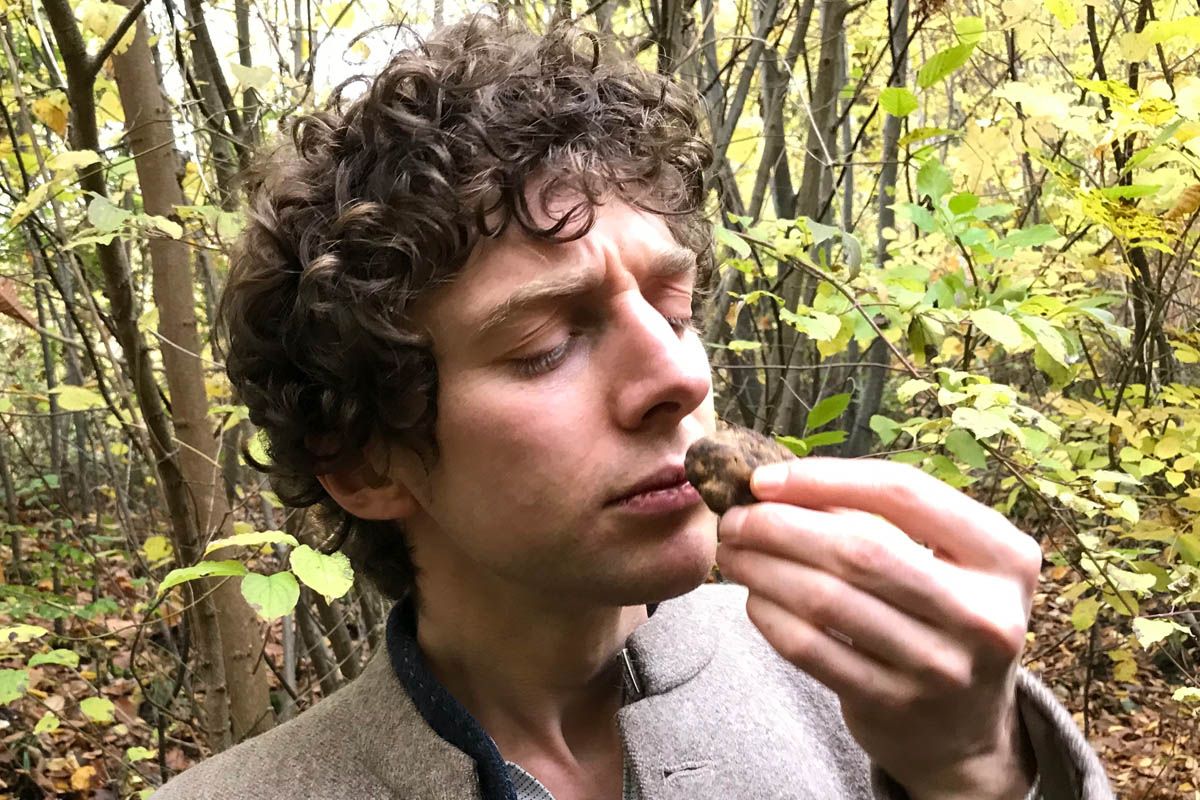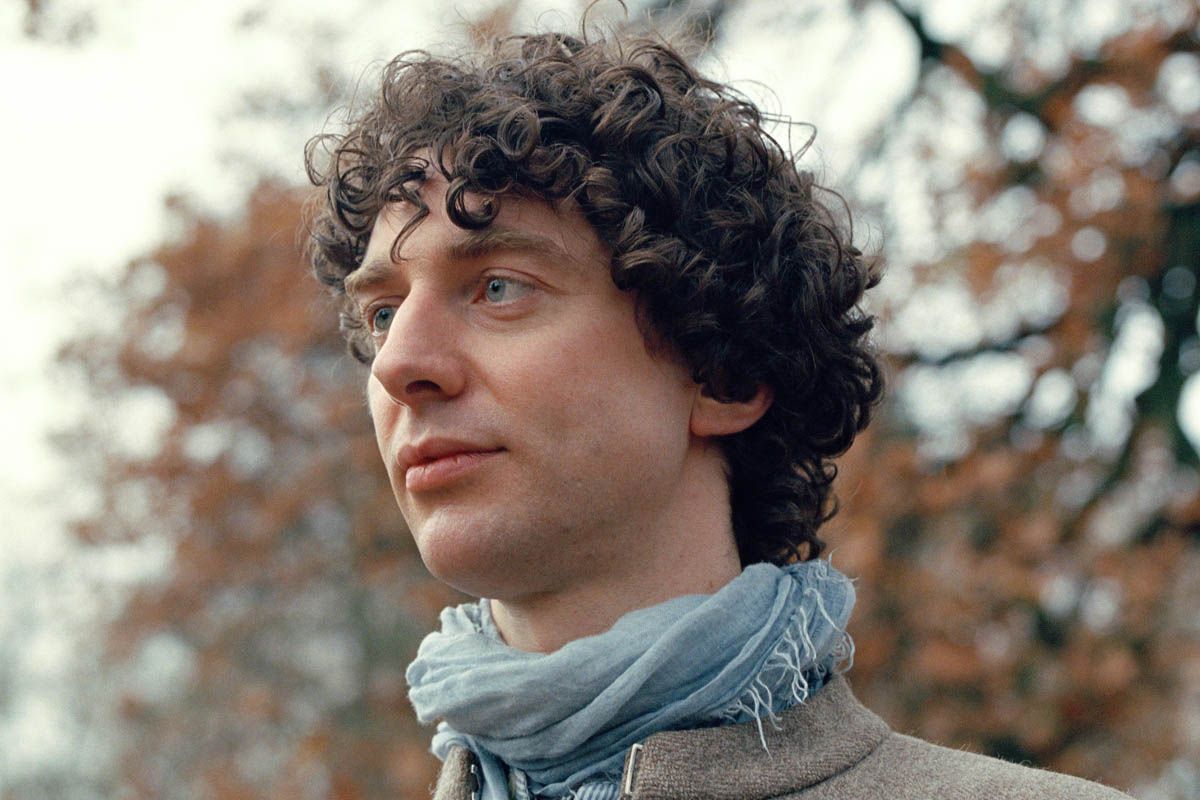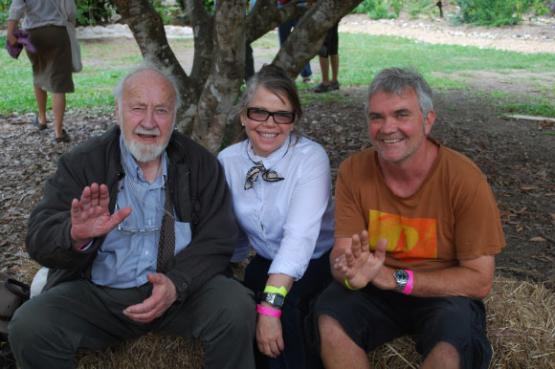
ALIVE! Meet Merlin Sheldrake, author of Entangled Life.
5 min read
Merlin is the author of Entangled Life: How Fungi Make Our Worlds, Change Our Minds, and Shape Our Futures. This book is an international bestseller, winner of the Wainwright Prize 2021, and has been nominated for a host of other prizes, including the British Book Awards Book of the Year 2021 for Narrative Non-Fiction and the Rathbones Folio Prize 2021.
Merlin has a Ph.D. in tropical ecology from Cambridge University for his work on underground fungal networks in tropical forests in Panama. In his talk at Alive! he will be talking all things mushroom - sharing stories and findings to explain the fundamental role that fungi play in our lives as well as the lives of plants. We caught up with him ahead of the event.

You have studied fungi for years - what are some of the key unanswered questions?
"One basic question is how fungal mycelium coordinates itself - there is a lot of confusion about this. How fungi are able to behave as integrated wholes given how they constantly revise, reshape, resculpt their networks and how they are able to behave as coherent entities without having a centralised place to coordinate activity from. I’m really interested in these basic questions of how mycelium is able to be mycelium. How do they communicate with themselves? How do they communicate with other networks? How do they grow? How do they fuse?"
Tell us about the interaction of fungi and the grape vine.
"Vines depends on their mycorrhizal fungal partners to supply them with nutrients. And the plant will be supplying sugars and fats to the fungus which would power its growth. The fats are lipids - basically energy containing carbon compounds. So the fungus would then be foraging for nutrients, which it would exchange with the plant for these energy compounds. This means that much of the mineral nutrition that ends up in the vine will be filtering through a fungus. So this obviously has implications for flavor and other such considerations. And also the way that people think about terroir, because terroir is a relationship between the plant and the soil and fungi are the prime mediator between the plant and the soil.
It also ties in with considerations about rootstock and growing vines on different rootstocks - where its rootstocks have come from how those rootstocks relate to the fungi in the soil. And how that might compare to indigenous rootstocks.
So there are fungi in the roots which are mediating the connection between the plants and the soil. There are fungi that live in plant leaves and shoots as well, which provide essential services to the plant - defense from pathogens and other pests being a big one. And then, of course, there are yeasts that coat the fruit and yeasts that coat other parts of the plants as well. But on the fruit they have some kind of a protective role. And obviously then play a part in the fermentation. So there are fungi at each of these stages and and so it's a quite a problem when people spray fungicide as it interrupts a number of these processes, which is one of the reasons why I'm interested in the natural wine scene and what it might uncover."
So how do the fungi transfer nutrients to the vines?
"They would be transferred in a liquid form, in solution - at least to travel through the fungus. They can transport a kind of crystal of minerals, but it’s more likely to be in liquid form. And then they are exchanged with the plant. How the exchange happens depends on what's being exchanged. And you can have transporters, which transport molecules individually, or you can have more bulk flow processes where parts of the fungal tissue within the plant are kind of digested by the plant, and kind of pop and release the contents. So to travel through a fungal network there is is going to have to be an aqueous phase, more or less."
What are the effects on these fungi from the application of herbicides, pesticides and so on?
"These are all different kinds of input that you might have in an industrial agricultural sector. Fungicides, obviously, will damage the fungi. Pesticides, also, will have harmful effects on fungi. Fertilizers can have negative effects as well, because plants and mycorrhizal fungi have a delicate and intricately managed exchange process. So if you spray in a load of fertilizers, then it can disrupt this exchange, the plant can start to withdraw support for the fungi then the fungi has to be forced into behaving more parasitically towards the plant - taking what they can get without necessarily exchanging anything in return."
What will we learn from fungi in the decades ahead?
"I think there will be different kinds of knowledge. Some of it will be basic knowledge: understanding more fully how the biosphere works, how the ecosystems in which we live and in which we are embedded. How do they operate? Who is connected to who? Who supplies what to who? Who defends who from who? And that is already starting to happen with our understanding of fungi and bacteria and microbes in general and the important role they play in the lives of larger organisms such as plants and animals. So I think part of it will be an enrichment of our basic understanding. And a general journey towards a more full understanding of how the living world is fundamentally made up of relationships between organisms.
Then there will be a different kind of knowledge which we might call applied knowledge and fungal technology: fungal solutions, products, medicines, cures, fungal material. New types of fermentation practise, new types of fungal food - all this type of thing."
How has your work on fungi challenged your understanding of concepts of intelligence, autonomy and identity?
"So fungal behaviors are strange and puzzling. And I find they can pull us out of some of our tired, unexamined categories and into new, open questions. I find that fungi are very good at decomposing our categories and patterns of thought. And it's one of the reasons I find it exciting to study them.
For example, fungi can navigate labyrinths and find the shortest path between two points - entrance and exit of a labyrinth. Labyrinths and mazes have been used to study intelligence of all sorts of organisms - from rats, to humans, to octopuses - because they are a good way to assess a certain kind of intelligence. But fungi are maze dwellers, they've evolved to solve spatial problems, they've evolved to deal with the question of how to distribute their body on a moment to moment basis, in the fantastically complex environment of soil, or the rock scape, or a decomposing log. This is what they do.
So when confronted with these behaviors, we're invited to deepen and expand our concepts of intelligence. And to reassess what we might think of as intelligence or cognition. This is happening across biology in lots of different fields. And it's a very welcome change, because people used to think about intelligence as something that humans did, and maybe a few other higher animals. Obviously, this is very anthrocentric. This is starting to change, because people are just paying more attention to what organisms can do.
So now the question is less 'Is an organism intelligent or not?' It's more 'To what degree does an organism show intelligent behaviors and what kind of intelligent behaviours do they show?' There are lots of ways to engage intelligently.
About individuality ... Like so many other findings in microbial sciences, it's clear that no organisms exist without a whole host of intimate interactions with microbes, bacteria, fungi, viruses, that all play really key roles in their growth and development and behavior. So organisms are, in fact, ecosystems. And in some sense, biology, which is the subject of living organisms, is transforming into ecology. Animals have fungi and bacteria living inside them; fungi have bacteria living inside them; bacteria have smaller bacteria living inside them in some cases; and bacteria have viruses living inside them, large viruses can have small viruses living inside them."
To find out more, join Merlin for his talk at Alive! on Monday, 6 December. Buy your tickets now!


